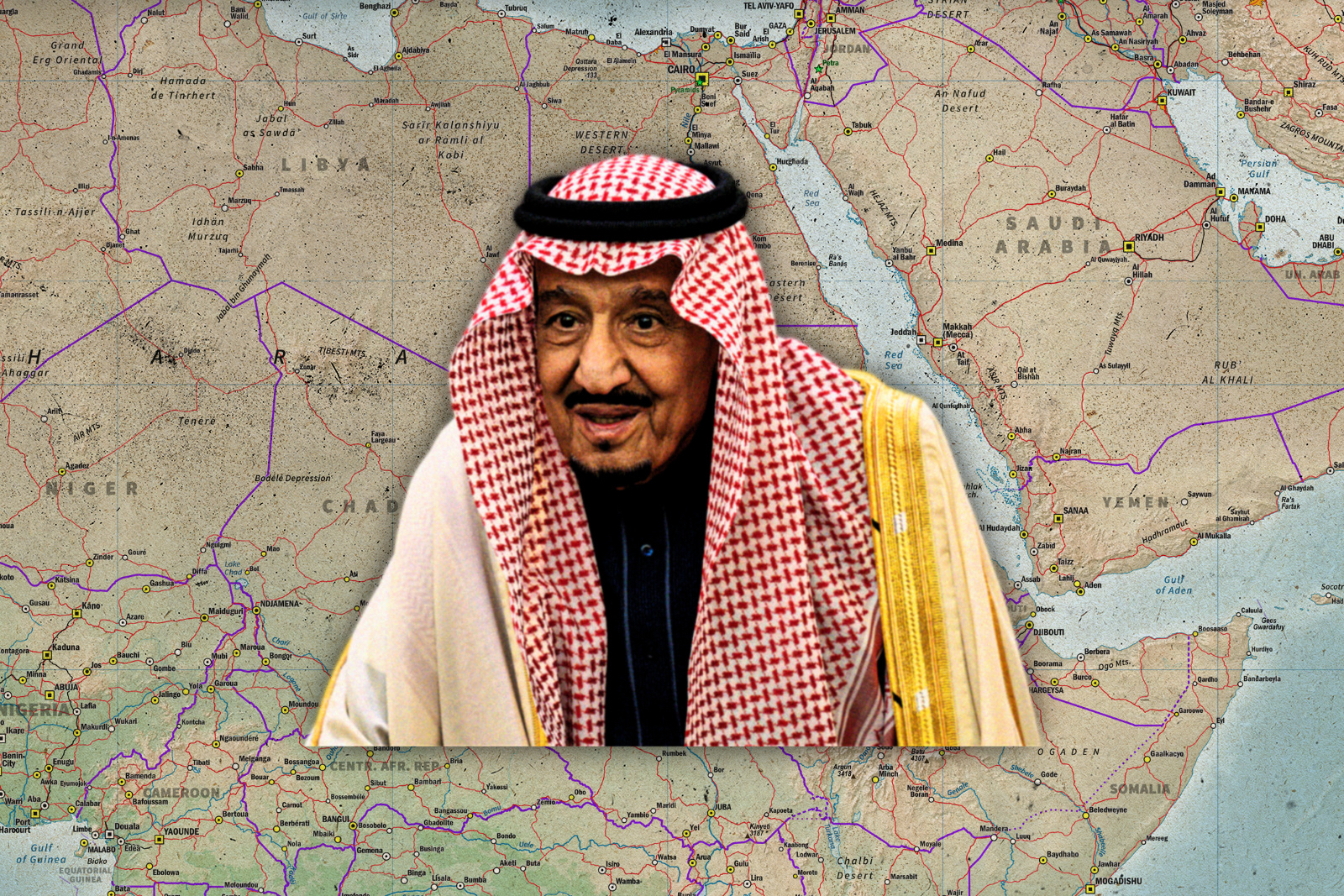
The Saudis Have been Making a Play for Africa
Over the past decade, Saudi Arabia has been fiercely jostling for regional leadership with Turkey, Iran, and the relatively smaller Qatar and the United Arab Emirates. However, Riyadh is now tactfully tipping the scales in its favor. The conflict in Ukraine has thrust Saudi Arabia back into the global spotlight due to the strategic value of its resources amidst a worldwide energy crisis.
Riyadh is seizing this opportunity to distance itself from past controversies, unveiling a new regional vision centered around diplomatic maneuvering and economic statecraft. This strategy shift is particularly evident in Saudi Arabia’s growing clout in Africa, solidifying its status as an emerging financial powerhouse.
Separated by only a few hundred miles, Saudi Arabia and the African continent share a deep-seated history. Out of the 55 African Union member states, relations with Saudi Arabia have blossomed. Currently, around 40 African embassies dot the landscape of Riyadh, while Saudi Arabia maintains 35 embassies throughout Africa, underscoring the weight of these alliances.
Notably, 25 of the 57 full member states of the Jeddah-based Organization of Islamic Cooperation hail from Africa. An array of African heads of state have flocked to Saudi Arabia since King Salman and his son ascended the throne, highlighting the crucial diplomatic interplay. The Saudi Development Fund, spearheading mammoth development projects in several African countries, is a striking example of the blossoming Saudi-African collaboration.
Saudi Arabia has consistently contributed to each replenishment of the African Development Fund. The linchpin of the partnership between the Bank Group and Saudi Arabia hinges on co-financing projects through the Saudi Development Fund, facilitating the funding of numerous development projects in various African nations at a discounted rate, with no specific sectoral preference. Notably, most loans for infrastructure have been directed toward Sudan, Mauritania, Senegal, Algeria, Morocco, and Tunisia.
Given the importance of African-Saudi collaboration and coordination, there is palpable anticipation for the forthcoming Saudi-African Summit, slated for later this year in Riyadh.
Saudi Arabia has leveraged Africa to circumvent crucial weaknesses, specifically its challenge in securing food supplies. Owing to its limited local production and vulnerability due to reliance on distant suppliers, Saudi Arabia has turned to African lands for its agricultural needs. This tactic is underpinned by the King Abdullah Initiative for Saudi Agricultural Investment Overseas, instituted in 2008 to encourage Saudis to buy land abroad. This initiative has significantly amplified the number of Saudi investors in Ethiopia and Sudan.
Saudi Arabia’s strategic influence in Africa, particularly in the Horn of Africa, presents a valuable security boon. Following a 2017 agreement on the establishment of a military base in Djibouti and similar defense contracts inked with African nations, Saudi Arabia and its principal Gulf ally, the United Arab Emirates, have expanded their “security belt” in the immediate vicinity.
Moreover, the Saudi pledge of $20 million worth of affordable oil to Zambia underscores its savvy utilization of its vast oil and gas reserves to curry favor and achieve strategic aims. This tactic potentially secures diplomatic backing from recipient nations. Beyond this, Saudi Arabia has harnessed its religious identity to extend its influence in Africa, home to roughly 446 million Muslims, primarily Sunnis.
Evidence of this strategy is apparent in Saudi Arabia’s meddling in Nigeria’s internal affairs, particularly through its support for the Sunni Izala movement, a bid to establish strategic and ideological footholds among Africa’s Muslim population.
The necessity to safeguard its environment and secure food supplies has partially driven Saudi Arabia’s African engagement. Yet, its soft power strategy, reflected in the growth of religious and political ties, primarily aims to counteract its arch-rival Iran.
Saudi Arabia has sought to magnify its influence by leveraging sectarian strife. Through supporting mosques and Islamic institutions, it has constructed extensive networks across Africa and exploited these connections to justify its involvement. For instance, Riyadh’s financial and political backing of local Sunni and Shiite factions has exacerbated Nigeria’s sectarian divide.
Furthermore, Iran’s aspiration to end its global isolation—a major factor in signing onto the Iran nuclear deal with the previous Obama administration—prompted Tehran to focus on the Horn of Africa, where several states were similarly diplomatically isolated. The intelligence and military alliance between Iran and Sudan illustrates this approach, as Sudan allowed Iran to arm its proxies, gaining strategic importance. Iran also formed comparable strategic alliances with Somalia and Eritrea.
Consequently, Iran’s intent to gain a foothold in Africa posed an immediate threat to Saudi interests, potentially expanding Iran’s global influence by controlling two strategically critical straits: Bab al-Mandab and Hormuz. In response, Saudi Arabia employed financial incentives and diplomatic pressure to coax these nations into severing ties with Iran, a strategy successfully replicated in sub-Saharan Africa.
Beyond Iran, Saudi Arabia is grappling with other nations, including Egypt and Turkey, for influence in Africa. Intriguingly, Saudi Arabia’s interference in East Africa encroaches upon Cairo’s sphere of influence. Saudi attempts to establish a military foothold in Djibouti and its interest in Ethiopia’s energy resources have fueled Egyptian suspicions. Simultaneously, Saudi Arabia’s maneuvers in Africa are set to clash with Turkish interests, as Ankara, propelled by its schools and foundations, has emerged as a formidable contender for Sunni leadership in the region. It’s worth noting that tension is escalating among Gulf Cooperation Council nations as they vie for dominance in Africa.
